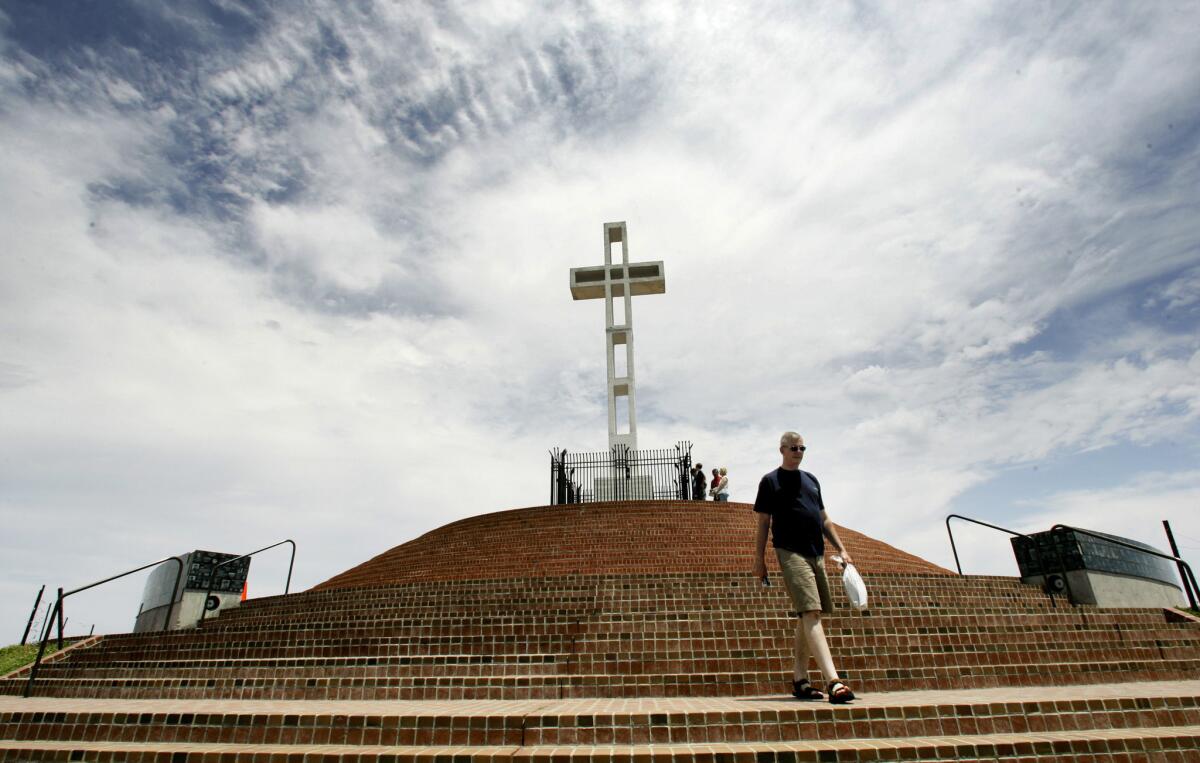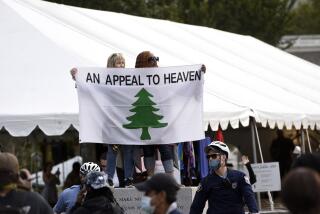U.S. Supreme Court declines to take up Mt. Soledad cross case

- Share via
Reporting from San Diego — The U.S. Supreme Court will not deal with the two-decade fight over the cross atop Mt. Soledad in San Diego until the contentious case goes back to the appellate court.
The court’s denial does not indicate how it will rule if the case does reach its level. Monday’s denial was announced by Justice Samuel A. Alito Jr.
The issue is whether the cross is a war memorial that should be allowed to remain, or an improper endorsement of a specific religion that should be removed. Passions in San Diego run strong on both sides.
In December, U.S. District Judge Larry Burns in San Diego reluctantly ordered the cross to be taken down within 90 days. But he also issued a stay so that those defending the cross would have time to appeal.
Although the U.S. Justice Department, which supports leaving the cross, had asked the court to wait until the appeals court’s final ruling, other supporters had asked the high court to decide the issue without sending it back to the appeals court.
The Dallas-based Liberty Institute, representing the Mt. Soledad Memorial Assn., had hoped the U.S. Supreme Court would take the case.
Hiram Sasser, litigation director for the Liberty Institute, has said they will continue to fight for the memorial “and the selfless sacrifice and service of all the millions of veterans it represents.”
But the American Civil Liberties Union, representing a group of Jewish war veterans, says the cross must come down because it represents an unconstitutional endorsement of one religion.
“We support the government paying tribute to those who served bravely in our country’s armed forces,” Daniel Mach, director of the ACLU Program on Freedom of Religion and Belief, told the Los Angeles Times. “But we should honor all of our heroes under one flag, not just one particular religious symbol.”
Built in 1954, the 43-foot cross is one of the most visible landmarks in San Diego. Starting in the early 1990s, plaques honoring military veterans have been placed on walls surrounding the base of the cross.
Defenders of the cross have argued that it is a war memorial, not exclusively a religious symbol.
In 2008, Burns ruled in favor of allowing the cross to remain. But in December, he sided with the U.S. 9th Circuit Court of Appeals decision in 2011 that the cross violated the 1st Amendment.
The appeals court was not persuaded by the fact that the property the cross stands on had been shifted from the city to the federal government for use as a war memorial.
“In spite of many secular changes to the memorial, its long sectarian history, as found by the 9th Circuit, effectively prevents the government from purging the religious connotation in any other way,” Burns wrote in his removal order.
More to Read
Sign up for Essential California
The most important California stories and recommendations in your inbox every morning.
You may occasionally receive promotional content from the Los Angeles Times.










